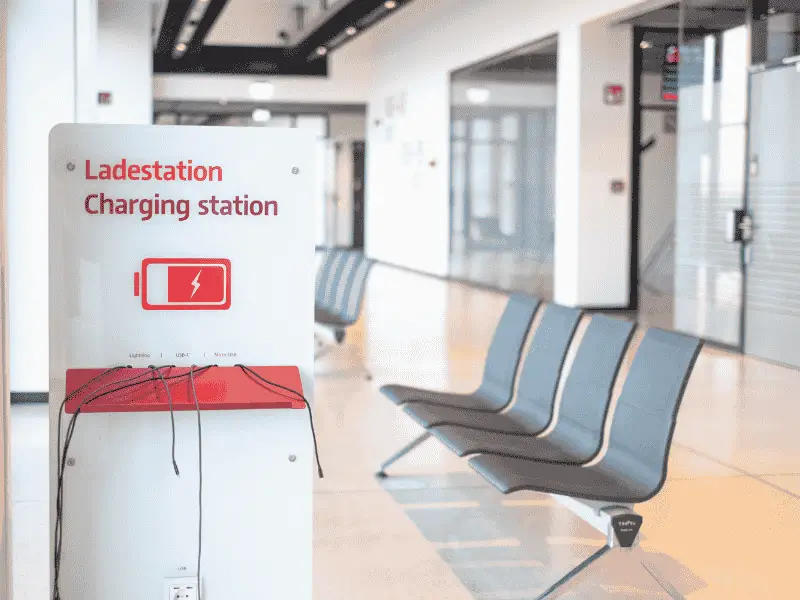The Federal Bureau of Investigation has issued an urgent warning to travelers about the dangers lurking in public USB charging stations at airports and train stations nationwide. The alert comes amid growing concerns about a cybersecurity threat known as “juice jacking,” where criminals modify charging ports to steal personal data and install malicious software on connected devices.

Security experts are reporting an increase in attacks targeting travelers through compromised charging stations. These modified ports, which appear identical to legitimate charging stations, can secretly access personal information, banking details, and private communications from connected devices while providing power to dying phones and laptops.
“Juice jacking,” as cybersecurity professionals have dubbed it, exploits a fundamental vulnerability in USB technology. While travelers see these ports as convenient power sources, the same connection that delivers electricity can also transfer data, creating an opportunity for cybercriminals.
How the Attack Works
The scheme operates through seemingly innocent charging stations installed throughout transportation hubs. When travelers connect their devices, compromised ports can immediately begin downloading personal data or installing malware. This malicious software might remain dormant initially, activating later to steal banking credentials or encrypt personal files for ransom.
Recent investigations have uncovered increasingly sophisticated attacks. Some compromised stations install cryptocurrency mining software, secretly using victims’ devices to generate digital currency. Others deploy ransomware, holding personal data hostage until payment is made.
The threat extends beyond domestic travel. International airports, train stations, shopping centers, and hotels worldwide have reported similar vulnerabilities. The universal nature of USB charging technology means any public charging point could potentially harbor risks for unsuspecting travelers.
Transportation security officials note that modified charging cables pose a particular challenge. These cables can contain hidden components designed for data theft while appearing completely normal to travelers seeking a quick power boost.
Prevention Measures
In response to the FBI warning, security experts recommend travelers carry their own charging equipment, including power banks and wall chargers. For those who must use public charging stations, specialized protective devices called “USB data blockers” can prevent unauthorized data access while allowing charging to continue.
The alert emphasizes the importance of preparing for travel with fully charged devices and appropriate charging equipment. This preparation helps avoid situations where travelers might feel compelled to use public charging stations out of necessity.
Corporate security departments are taking particular notice of this threat. Many companies have begun updating their travel policies, prohibiting employees from using public charging stations to protect sensitive business information. Some organizations now provide approved charging equipment to traveling staff members.
The risk to business travelers extends beyond personal data loss. Compromised devices could potentially expose entire corporate networks to security breaches, leading to significant financial and operational impacts.
Major transportation hubs are beginning to address these security concerns. Several airports have started installing clearly marked “charge-only” stations that physically disconnect data transfer capabilities. However, these safety measures are not yet widespread, and travelers should remain cautious at all facilities.
Financial institutions have joined the FBI in warning about the risks of using public charging stations. Banking security experts strongly advise against accessing financial applications or conducting transactions while connected to public charging points, noting that compromised devices could lead to unauthorized access to banking services.
Security Recommendations
Transportation security officials emphasize that prevention remains the most effective defense. Travelers should maintain updated antivirus protection, regularly change sensitive passwords, and avoid conducting sensitive transactions while connected to public power sources.
The scale of this security threat has prompted a broader examination of public charging infrastructure. While these stations continue to offer convenience for travelers, the potential risks have raised serious questions about their future in transportation hubs.




